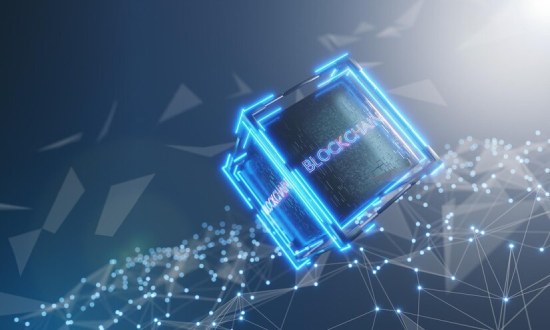-
By 2025, blockchain technology is projected to secure $176 billion in business value, with estimates soaring to $3.1 trillion by 2030 (Gartner). Meanwhile, traditional voting systems often need help with low voter turnout, with the 2020 U.S. election seeing only 43.1% of votes cast by mail (USA Facts). Imagine a democratic system where your voice is always heard, whether casting your vote directly or entrusting your vote to a representative of your choice. This is the promise of liquid democracy, a transformative model that blends the best of direct and representative democracy. When combined with blockchain solutions, liquid democracy becomes even more powerful, offering unprecedented levels of transparency, security, and efficiency.
Read Also | Creating an Ethereum Wallet Using Spring Boot
What is Liquid Democracy?
Liquid democracy is a hybrid governance model that combines elements of direct and representative democracy. It allows voters to either vote directly on issues or delegate their voting power to trusted representatives, with the flexibility to change delegates at any time. This dynamic approach ensures that votes align with participants' evolving views, making decision-making more participatory and responsive.
In blockchain governance, liquid democracy is particularly effective. Experts can vote on complex issues directly, while others can delegate their votes to knowledgeable leaders. This ensures informed decision-making without excluding those who prefer not to vote on every issue.
In 2023, DAOs using liquid democracy reported a 20% increase in voter participation compared to traditional models, highlighting its ability to engage communities actively. Blockchain's transparency ensures that all votes and delegates remain verifiable, building trust among crypto investors and businesses. This adaptability makes liquid democracy a powerful tool for modern, decentralized governance.
Suggested Read | How Blockchain is Enhancing Cybersecurity
How Liquid Democracy Works in Blockchain
Direct Voting
Participants vote directly on proposals, ensuring their voices resonate on important issues. This approach encourages active engagement from those who want to participate directly.
Delegation
Voters delegate their voting power to trusted representatives, making it ideal for those without the time or expertise to vote on every issue. Delegates act as intermediaries, casting votes on behalf of others.
Liquid Delegation
Delegators change or revoke their delegation at any time, allowing the system to adapt quickly to new information and shifts in sentiment. This ensures that votes always align with participants' current views.
Decentralization and Transparency
Blockchain records all votes and delegations on an immutable ledger, preventing tampering and ensuring transparency.
Smart Contracts
Smart contracts automate the voting process, executing decisions automatically when conditions are met. This reduces the need for intermediaries and ensures fairness.
Real-Time Updates
Blockchain enables dynamic delegation, allowing voters to update their delegated votes instantly and record these changes in real-time.
Privacy Protection
Cryptographic techniques safeguard voter privacy, ensuring anonymity while maintaining the integrity of the voting process.
You may also like | Understanding the Impact of AI Crypto Trading Bots
Real-World Examples of Liquid Democracy in Blockchain
Several blockchain projects are already harnessing the power of liquid democracy to create more equitable governance systems. Here are a few notable examples:
Cardano
Cardano's governance model is a prominent example of liquid democracy in action. It allows stakeholders to vote on proposals for network upgrades and protocol changes, either directly or through delegation. Cardano's approach has made it a leader in the space, offering investors a platform that emphasizes long-term sustainability and community involvement.
For businesses and investors, Cardano's liquid democracy model provides a way to engage with the project's future while leveraging the expertise of elected representatives. This balance of participation and efficiency makes Cardano an attractive option for those looking to invest in a blockchain with a robust governance structure.
Decentraland
As a virtual world governed by a Decentralized Autonomous Organization (DAO), Decentraland uses liquid democracy to empower its community to shape the platform's development. Users can vote on proposals concerning virtual land use, feature additions, and governance rules, directly or through delegation.
Decentraland's use of liquid democracy demonstrates how this governance model can be applied beyond financial decisions, impacting the development of digital ecosystems and virtual economies. For businesses interested in investing in the metaverse and virtual worlds, Decentraland's governance model offers a glimpse into how community-driven decision-making can shape the future of digital interactions.
Explore | Can Blockchain Solve Creators' Copyright Challenges?
Why Liquid Democracy is the Future of Decentralized Governance
Liquid democracy represents a shift towards more adaptive, transparent, and inclusive governance models. It bridges the gap between individual participation and expert-led decision-making, making it particularly well-suited for the complexities of blockchain projects. For crypto investors and businesses, adopting liquid democracy means investing in a governance system that is not only democratic but also capable of evolving with the needs of its community.
As the blockchain space continues to grow, projects that prioritize effective governance will stand out in an increasingly competitive landscape. By integrating liquid democracy, these projects can foster stronger community engagement, ensure accountability, and adapt quickly to the ever-changing environment of the crypto world. For investors, this is not just about voting—it's about shaping the future of the technologies they believe in.
Conclusion
Liquid democracy offers a powerful way to rethink how blockchain projects govern themselves. It empowers individuals while enabling efficient decision-making, making it a perfect fit for decentralized ecosystems. For businesses, crypto investors, and blockchain developers, understanding and supporting projects that use liquid democracy can be a strategic move—one that aligns with the principles of decentralization and community empowerment.
As you look to the future of blockchain, consider how liquid democracy can transform not only the projects you invest in but the very nature of governance itself.
Oodles Blockchain, a blockchain development company, specializes in building robust and innovative solutions for decentralized platforms. Whether you're interested in exploring how specific blockchain projects implement liquid democracy or diving deeper into its impact on investment strategies, we are here to help. Reach out, and let's continue the conversation about the future of governance in blockchain.

Our Offices
INDIA
Emaar Digital Greens, Sector 61,
Gurugram, Haryana
122011.
Welldone Tech Park,
Sector 48, Sohna road,
Gurugram, Haryana
122018.















